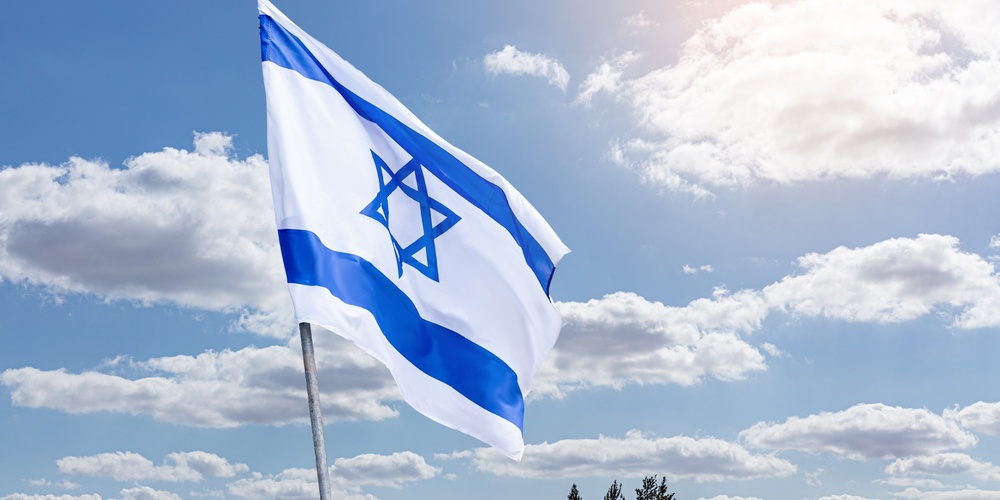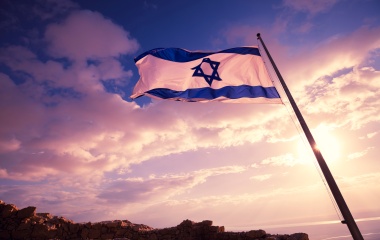
“And Yaakov worked for Rachel for seven years, and they appeared in his eyes like just a few because of his love for her” (Breisheet 29:20). Seven years is a long time to wait to marry the love of one’s life. Seven years is long to wait for almost anything.
But some things are worth waiting for, and while the wait was painful, Yaakov saw the seven years as a passing phase to be followed by a lifetime of happiness.
If seven years is a long time, then 70 years is an eternity—and for the average human being, it is just that. “The years of our lives are but 70 years” (Tehillim 90:10). There seems to be little point in waiting 70 years for things to get better—to quote John Maynard Keynes, the Nobel Prize winning economist, “in the long run, we are all dead”.
“Rav Yochanan said: This righteous man [Choni Hama’agal] was throughout the whole of his life troubled about the meaning of the verse, ‘A Song of Ascents, When the Lord brought back those who returned to Zion, we were like unto them that dream’ (Tehillim 126:1). Is it possible for one to dream for 70 years?” (Taanit 23a).
For those wrapped up in themselves, there is little point in worrying about what might be 70 years hence. This goes a long way to explain the choices made by many politicians, CEOs, and so many in society who all too often focus on the short-term.
The Gemara relates how Choni, while contemplating his own question, saw someone planting a carob tree and asked him when the fruit might be ready. When told it would be 70 years before the tree would give fruit, Choni wondered why this man would plant a tree the fruit of which he would never eat. The farmer told him that just as his grandfather had planted for him, he would plant for his grandchildren.
It takes a special person to toil when it is others who will reap the benefits. Yet, for those who take a long-term view, 70 years pass very quickly, as if in a dream.
Choni could not believe that a people could keep the dream of returning to Zion for 70 long years. It is hard to imagine what he would say about those who dreamt for 70 years, then another 70, then another, and another—and who were still dreaming 700 years later, and then another 700 years, and then another seven more cycles of 70 years. But dream we did. And while there were too many nightmares along the way, what a dream the past 70 years have been!
I need not list the amazing accomplishments of this tiny state, which is a world leader in so many areas—science and technology, medicine, agriculture, the arts—and this before we get to its impact on Jewish life. All while enemies seek to destroy it.
Yet with 70 years constituting an entire lifetime, much is forgotten after 70 years have passed. The Gemara relates that Choni himself was afforded the opportunity of a 70-year dream. When he awoke, it looked like the same man he had met 70 years earlier was tending to his carob tree. When he told Choni that he was actually the grandson of the one who had planted the tree years earlier, Choni realized that he had slept for a very long time. While all looked pretty much the same, much had changed. When he arrived home, his own family did not believe that he was Choni. His children had died and never before had he met his grandchildren. The rabbis in the Beit Midrash did not believe that he was the famous Choni who “could resolve whatever difficulties the rabbis had”. He went into a state of depression and died soon after. Commenting on this story some 400 years later, Rava quoted the popular aphorism “Oh chevruta oh mituta, either friendship or death”.
The Jewish people were put to sleep and left for dead, wandering from place to place for close to 2,000 years. But finally they awoke— or shall we say, G-d wakened them. But few could, or would, believe these were the same people who were returning to their ancient land. It cannot be, they argued. No nation can survive 2,000 years of exile while still keeping their laws, traditions and customs. It is not possible to revive a language that has not been spoken colloquially over the centuries. How could a persecuted minority not give up their way of life? Did they not assimilate? Did G-d not reject them?
And yet it was the same Jew, only new and improved. No longer would “Jewish blood be hefker”; no longer would this awakened nation be fodder for others. The wandering People of the Book became leaders in the world, a nation that so many seek to emulate—some openly and many covertly. They come running to see how to make a desert bloom, they open up offices to take advantage of Israeli ingenuity, they purchase the best of military equipment and they marvel at what this little nation has accomplished in so little time and against so many odds.
But still, there are too many who refuse to believe that it is the spiritual and physical descendants of an ancient people who have returned to the Land. They mock and laugh at us, hoping for a day when they can put us back to sleep.
And as strong as the State of Israel is, it cannot do it alone. Oh chevruta oh mituta, either friendship or death. Thank G-d, other nations have played an absolutely crucial role in the survival of the state, be they Czechoslovakia, France, or the United States.
Perhaps equally important is the friendship of the Jewish people. It is their support of Israel—economic, political, moral and more—that is crucial both for Israelis and themselves.
But with living reality turning into history after some 70 years, one runs the risk of forgetting just how crucial a State of Israel is, of forgetting the lessons of history. It is easy to focus on the faults of the state, to complain about this and that—and this and that, too. But we must not lose perspective and we dare not forget the not-too-distant past.
For those who were born after 1948—most of us—we know of Jewish life without a state only from the history books. We need to remind ourselves what life without a state meant, lest we forget how fortunate we are. Many lament the imperfections of this human state, as if other states are perfect. No, Israel is not perfect, but it is more perfect than any nation on earth.
Whatever its imperfections, to contemplate the alternative is frightening. Imagine how different Jewish life would be had Israel been founded in 1938 and not 1948!
Israel has saved hundreds of thousands of Jewish lives; and saved hundreds of thousands, perhaps millions more from assimilation. Many may not observe traditional Jewish law—though the numbers who do are staggering[1]—but absent a Jewish state, most of those who today are proud Israelis and Jews would have assimilated long ago, just like so many of their brethren did in the Diaspora. Today, literally millions are Jewish only because of the State of Israel. We dare not forget that.
Unlike any other country in the world, Israel observes its memorial day, Yom Hazikaron, the day before its independence day, Yom Ha’atzmaut. We are reminded of the cost of having a Jewish state. But just one week earlier, on Yom HaShoah, we are reminded of the cost of not having a Jewish state.
The Jewish people have dreamed many dreams over the past 2,000 years and have been blessed to see many of those dreams fulfilled. But there are so many more that need fulfillment. And we need to keep dreaming, as the more we dream, the more we can achieve. Let us dream together—and may the greatest of dreams, the dream of peace, become a reality. Moadim lesimcha legeula shleimah.
[1] I always marvel at the notion that while no more than 30% of the Israeli population describes itself as observant, more than 50% keep kosher. In other words, there are many thousands of Jews who claim to be irreligious, yet observe the laws of kashrut.



